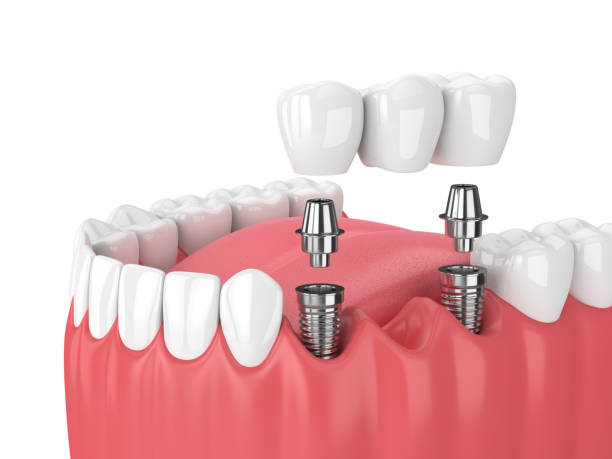 A child’s smile is one of the purest forms of joy. However, dental issues like decay or trauma can compromise the health and appearance of those precious little teeth. When it comes to protecting and restoring front teeth, pediatric crowns offer an effective solution. This article delves into the various options available for pediatric crowns for front teeth, focusing on esthetic pediatric crowns, white pediatric crowns, and their associated costs.
A child’s smile is one of the purest forms of joy. However, dental issues like decay or trauma can compromise the health and appearance of those precious little teeth. When it comes to protecting and restoring front teeth, pediatric crowns offer an effective solution. This article delves into the various options available for pediatric crowns for front teeth, focusing on esthetic pediatric crowns, white pediatric crowns, and their associated costs.
The Importance of Pediatric Crowns for Front Teeth
Front teeth, or incisors, play a crucial role not just in aesthetics but also in speech development and proper chewing. When these teeth are damaged, restoring them with a pediatric crown ensures they continue to function correctly and maintain the child’s self-confidence. Pediatric crowns are designed to cover and protect a tooth that has been compromised by decay, injury, or developmental defects.
Esthetic Pediatric Crowns
Esthetic pediatric crowns are increasingly popular due to their ability to blend seamlessly with natural teeth. These crowns are typically made from materials like composite resin or zirconia, which are both durable and tooth-colored. The main advantage of esthetic pediatric crowns is their natural appearance, making them an ideal choice for front teeth where visibility is a concern.
White Pediatric Crowns
White pediatric crowns are a specific type of esthetic crown, often made from zirconia. Zirconia is a strong, biocompatible material that mimics the color and translucency of natural teeth. White pediatric crowns are particularly favored for their durability and aesthetic appeal. Unlike stainless steel crowns, which are more noticeable, white crowns ensure that a child’s smile looks as natural as possible.
Benefits of Esthetic and White Pediatric Crowns
- Aesthetic Appeal: Both esthetic and white pediatric crowns provide a natural look that blends with the child’s existing teeth, preserving the beauty of their smile.
- Durability: Zirconia, used in white pediatric crowns, is extremely durable and resistant to chipping and staining. This makes it a reliable option for active children.
- Biocompatibility: Materials like zirconia are biocompatible, meaning they are unlikely to cause allergic reactions or irritation in the mouth.
- Confidence Boost: Restoring front teeth with natural-looking crowns helps maintain a child’s self-esteem, especially during formative years when appearance can significantly impact social interactions.
Pediatric Crown Cost
The cost of pediatric crowns varies depending on the material used and the dentist’s expertise. On average, the cost can range from $150 to $500 per tooth. Here’s a breakdown of the typical costs:
- Composite Resin Crowns: These are generally less expensive, costing between $150 and $250 per tooth. They offer a good balance between cost and aesthetics but may not be as durable as zirconia crowns.
- Zirconia Crowns: These are more expensive, ranging from $300 to $500 per tooth, but they provide superior durability and aesthetics.
Insurance often covers a portion of the cost for medically necessary crowns, but it’s essential to check with your provider. Additionally, many dental practices offer payment plans to help manage the expense.
Choosing the Right Crown in Pediatrics
When selecting a pediatric crown for front teeth, it’s crucial to consider both the functional and aesthetic needs of the child. Esthetic and white pediatric crowns are excellent choices for front teeth due to their natural appearance and durability. Consulting with a pediatric dentist will ensure that the most appropriate material and type of crown are chosen based on the child’s specific needs and circumstances.
Conclusion
Protecting and restoring a child’s front teeth is essential for their overall oral health and self-confidence. Esthetic and white pediatric crowns offer excellent solutions, combining durability with a natural appearance. While the pediatric crown cost can vary, investing in these restorations ensures that your child’s smile remains as radiant as ever. By understanding the options and consulting with a knowledgeable dentist, parents can make informed decisions that contribute to the well-being and happiness of their little ones.
